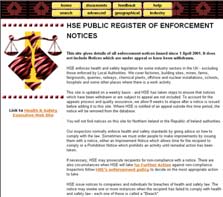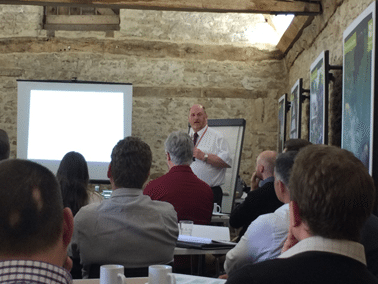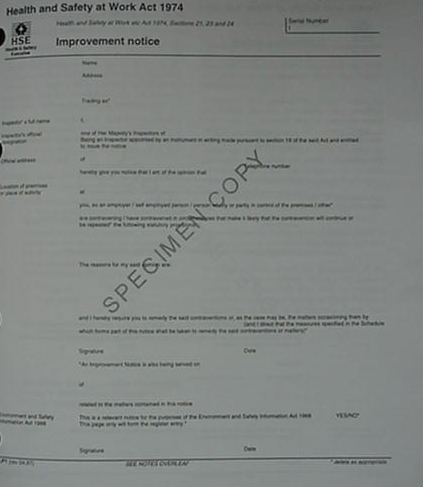I was having a discussion last week with somebody about the official forms the HSE issue, Prohibition Notices, Improvement Notices and Fee For Intervention.

I was being asked:
- Why you get one of these?
- Can you appeal if you think it isn’t fair?
- Can the HSE issue an improvement of prohibition notice and a Fee For Intervention or are they separate?
So this article looks at the Prohibition and Improvement Notices and gives you some Key Facts about both of them.
This week’s 2 recent HSE cases look at accidents where there was a lack of H&S management.
- A construction company has been fined after it carried out unsafe and unlicensed asbestos removal during the refurbishment works in a junior school in Dursley.
- The Health and Safety Executive (HSE) has today launched its Annual Science Review PDF with a focus on its work in supporting a sustainable energy sector in the UK.
As ever, if you have a subject that you would like us to cover one week, please contact us by phone 01458 253682, email or via our Facebook page or by Twitter.
Some Key Facts about Prohibition Notices
Some Key Facts about Improvement Notices
If you would like any further help or support, please please contact us by phone 01458 253682, email or via our Facebook page or by Twitter.
Taunton & Somerset CPD Group at The Exchange House Taunton
Please note our new venue.
Having held last week’s seminar at the Exchange House and received favourable comments so from now on we are intending to run these CPD events at the Exchange House, 12 – 14 The Crescent, Taunton TA1 4EB.
The next of the CPD events is listed below.
As previously requested, if you could let us know whether or not you can attend it would be greatly appreciated. Also, if you would like to give a talk, or know of somebody who would, please contact Jon at [email protected]
Our next Seminar will be on 21st March 2018. Could you please arrive by 12:30pm prompt.
Our speaker for this one is Nick Hunt of Cupa Slate to talk about Specifying Natural Roofing Slate.
If you haven’t already booked your place, or if you are not on the CPD Seminar mailing list but would like to be please drop Jon an email and he will deal with your request.
As per our last one if you could let Jon know whether or not you can attend within 7 days of receipt of his email, it would be greatly appreciated.
Advance notice of next seminars:
April Seminar 0n 11th April will be Amwell Systems Ltd with their recently updated RIBA approved CPD Innovation in Flush Fronted Washrooms.
Contact Details [email protected], 07831 714199 or 01458 253682.
Training Courses
We shall be running new courses again in 2018 and the dates and details of forthcoming courses will be published here each week.
But remember we are still available for running “In House” courses and are looking to add new training courses to our list.
If you have any questions about these courses or any other training or would like us to run a particular course for you, call Jon Wilkins of the Wilkins Safety Group on 01458 253682 or email him at [email protected]
You will note that one of these courses is the 2-day Level 2 course in Supervising Staff Safely which you and your managers should attend in order to help you manage your safety properly!
Courses available for booking now
Training Courses
We shall be running new courses again in 2018 and the dates and details of forthcoming courses will be published here each week.
But remember we are still available for running “In House” courses and are looking to add new training courses to our list.
If you have any questions about these courses or any other training or would like us to run a particular course for you, call Jon Wilkins of the Wilkins Safety Group on 01458 253682 or email him at [email protected]
You will note that one of these courses is the 2-day Level 2 course in Supervising Staff Safely which you and your managers should attend in order to help you manage your safety properly!

 An Improvement Notice is a formal document that can be served by any inspector appointed under the
An Improvement Notice is a formal document that can be served by any inspector appointed under the